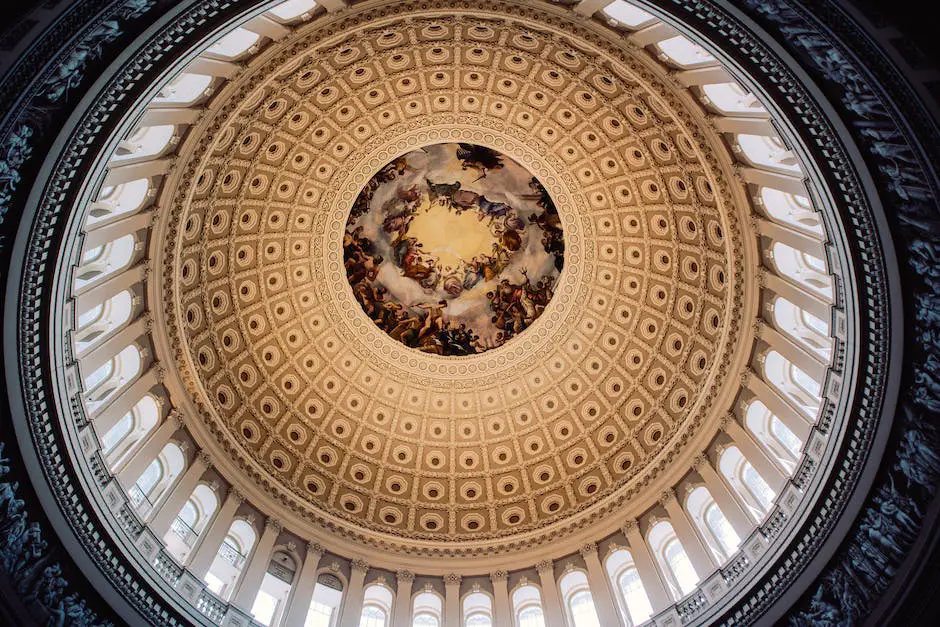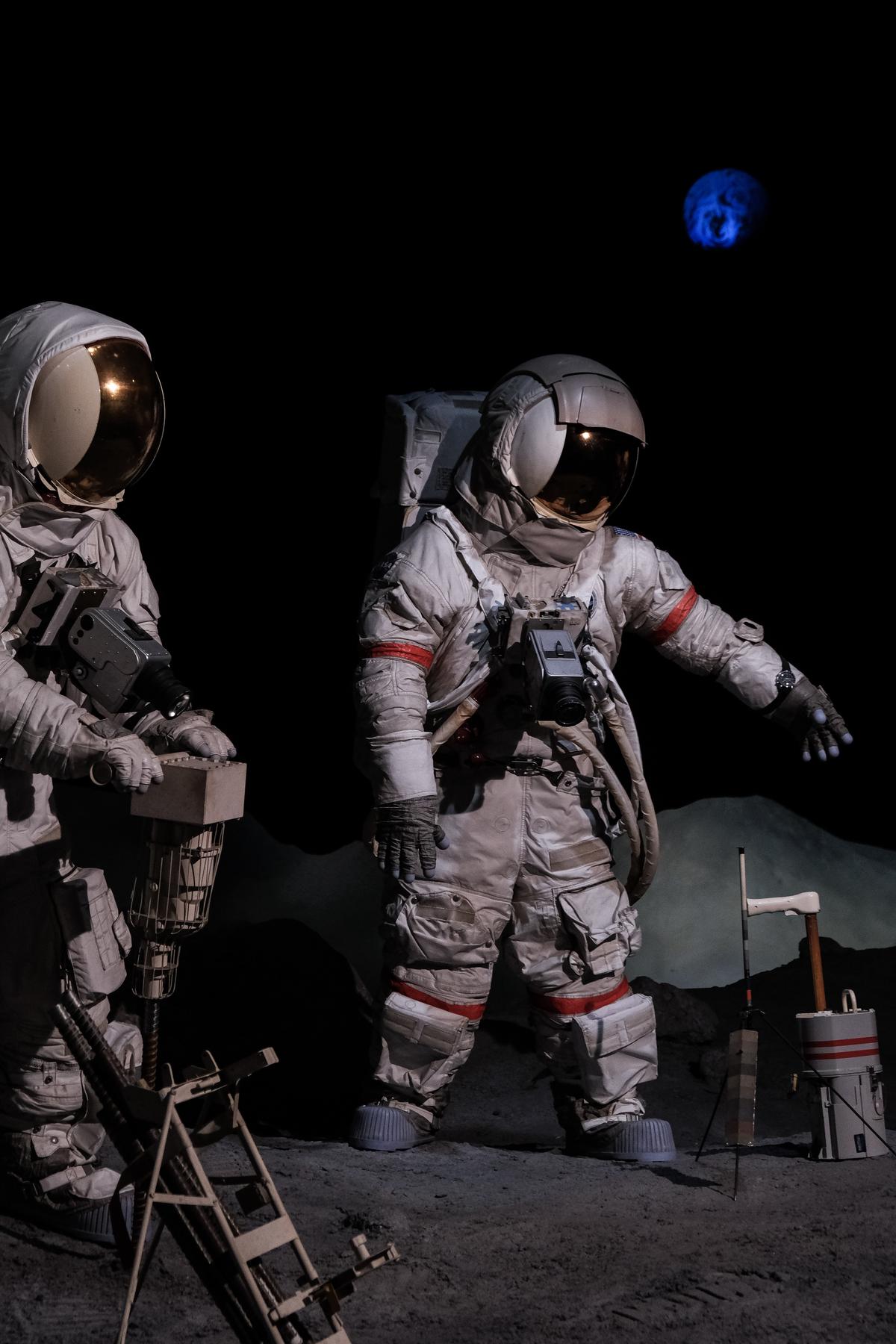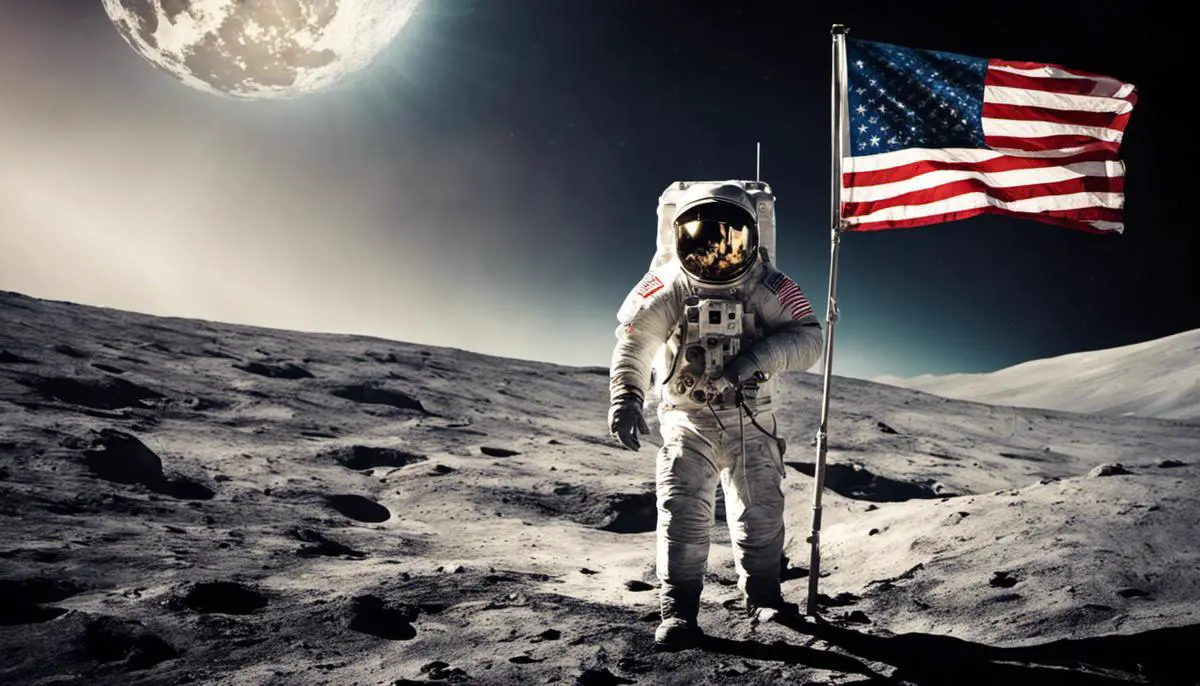In the annals of human history, few endeavors have sparked the collective imagination as profoundly as the Apollo missions. It was not just a technological marvel or a geopolitical statement; it was, above all, a testament to human curiosity and resolve. A select group of individuals, revered as astronauts, were at the forefront of these missions, reaching out beyond the confines of our planet and inspiring millions. However, for some of these spacefarers, the journey did not end with their return to Earth. They embarked on a different kind of service, trading their spacesuits for political suits— showing an intriguing transition from astronauts to politicians. This narrative offers an in-depth exploration of these space travelers turned public servants, their driving forces, political journey, and the enduring legacy they have etched in our socio-political landscape.
Contents
Profile of Astronauts Turned Politicians
John Glenn: The Astronaut Senator
Having been one of the Mercury Seven, the first astronauts selected by NASA, John Glenn’s name was written in the annals of space history even before the Apollo missions unfolded. He made history in 1962 as the first American to orbit the Earth aboard the Friendship 7 spacecraft. A decorated pilot with distinguished service in both World War II and the Korean War, Glenn’s exposure to the space program was not merely scientific but heavily political, as it was related to the country’s status in the ongoing Cold War.
Glenn retired from NASA in 1964, and in 1974, he successfully ran as a Democratic candidate in Ohio for the United States Senate. With a focus on arms control, he served four terms and had a failed run for the presidency in 1984. In 1988, he introduced nonbinding legislation calling for the end of nuclear weapons testing. His career in Senate ended in 1999, but Glenn’s connection to space exploration didn’t. He returned to space in 1998 aboard the Space Shuttle Discovery, becoming the oldest person to go to space at 77.
Harrison Schmitt: Scientist, Apollo Astronaut, and Senator
Harrison Schmitt, also known as Jack Schmitt, held a unique position among the Apollo astronauts, being the only professional scientist in the group. With a doctorate in geology, Schmitt was crucial in training his fellow astronauts in lunar observation and geological sampling. Nowadays, he is remembered as one of the astronauts aboard Apollo 17, the last manned mission to the moon in 1972, where he spent over 20 hours on lunar extravehicular activity.
Schmitt’s career took a path towards politics when he ran as a Republican U.S. Senator for New Mexico in 1976. During his tenure in Senate from 1977 to 1983, he was particularly involved in science policy, focusing on issues related to energy, nuclear waste, and space. He was also the chairman of the Senate’s Subcommittee on Science, Technology, and Space. Despite his contributions, Schmitt failed to secure reelection.
Jack Swigert: Apollo 13 Astronaut and Congressman-Elect
Jack Swigert, who was the Apollo 13 Command Module Pilot, became a household name for a crisis situation in space that unfolded in real-time before the eyes of millions of television viewers. Upon the infamous Apollo 13’s “Houston, we’ve had a problem” moment, Swigert adeptly worked with ground control to ensure the safety of the crew and successfully returned them to Earth.
After leaving NASA in 1977, Swigert planned to take his problem-solving skills to Washington. He won as a Republican candidate in Colorado’s 6th congressional district in 1982 but never took the oath of office. On December 27, 1982, just days before he was supposed to be sworn in, Swigert passed away from bone cancer.
Summary
Transitioning from astronauts to politicians, these Apollo mission pioneers demonstrated the breadth of their talent and their commitment to public service. Regardless of the length or significance of their political tenure, their dual contributions to science and politics remain invaluable. Pivotal figures such as John Glenn and Harrison Schmitt, who dedicated themselves to topics such as arms control and science policy, embody the inspirational spirit of public service that these astronauts-turned-politicians personify.

Motivation for Political Career
Factors Influencing Astronauts’ Political Aspirations
Many astronauts from the famed Apollo missions subsequently decided to enter the realm of politics. The motivations propelling this career shift varied from one individual to another, but there were a few common threads – their original occupations, the national acclaim they garnered, and the distinct insights they gained while in space somewhat steered their decision to immerse themselves in politics.
Impact of Astronaut Service
Being an astronaut entailed embodying the spirit of public service, exercising leadership, and making pivotal decisions in high-pressure scenarios—all of which are characteristics intrinsic to political office. Numerous astronauts were also military veterans and thus harbored a profound sense of belonging and commitment to their nation. The unity and international cooperation observed in their high-stakes environment might have stimulated their interest in politics.
Utilizing Public Acclaim
Apollo astronauts held a special place in the hearts of American citizens—they were national heroes. Taking on political roles allowed them to leverage their public recognition and the widespread trust they hold to effect change and uphold the causes they are passionate about.
The Impact of the Overview Effect
An often-quoted motivation for their political careers is the unprecedented view they were privileged to have of the Earth from space—referred to as the Overview Effect. This perspective instills a sense of unity, interconnectedness, and vulnerability of our planet. Apollo astronauts John Glenn and Harrison Schmitt have publicly reflected on how their unique experiences in space guided their political ideologies and motivations.
Inspiration Behind Ideologies
The personal convictions, beliefs and experiences of astronaut-turned-politicians played a substantial role in determining their political leanings. While some propagated for more emphasis on scientific education and space exploration, others like Schmitt and Jack Swigert, gravitated towards conservative political ideologies advocating for restrained government oversight and deregulation.
The Ripple Effect of Astronaut Experiences
Insights gleaned during their stellar journeys often surfaced in the political careers of these astronauts. For instance, John Glenn attributed his activism for the environment, science, and technology in political circles to the perspective he gained from his spaceflight. Simultaneously, Schmitt’s experience on the moon nurtured an appreciation for Earth’s resources that later influenced his position on energy policy.
To sum up, the shift from astronaut to politician was widely influenced by aspects like their professional background, personal beliefs, and unique experiences. These components, in various measures, shaped their objectives and political ideologies, illustrating the profound influence their time in space had on their consequent political endeavors.

Political Careers and Contributions
From Countdown to Congress: John Glenn
NASA’s pioneering astronaut John Glenn made a remarkable shift from exploring the unknown frontiers of space to navigating the corridors of power as a U.S. Senator from Ohio. From 1974 to 1999, he served the Democratic party, occupying numerous committee memberships and chair positions, notably helming the Committee on Governmental Affairs from 1987 to 1995. His illustrious political career was marked by a notable focus on science, technology, and space exploration.
Glenn’s legislative record was notable for his dedication to nuclear non-proliferation, arms control, education, and research funding. His authorship of the Nuclear Non-Proliferation Act of 1978 underlined his commitment to peace and security. A true space pioneer, Glenn brought a practical approach to space policy, favoring cost-effective initiatives like the shuttle program over expensive, ambitious projects like manned Mars explorations. As a former astronaut, his unique insight was valued in discussions involving space policy.
Harrison Schmitt: From Moon Landing to New Mexico Senator
Astronaut Harrison Schmitt, a geologist who walked on the moon during the last Apollo mission in 1972, served as a U.S. Senator for New Mexico from 1977 to 1983. Also known as Jack Schmitt, he served one term as a Republican senator. He held position on committees including Energy and Natural Resources, Science, Technology, and Space, and Ethics.
In the Senate, he advocated for commercial space development, research into renewable energy sources, and free-market solutions to economic challenges. However, his most significant achievements relate to his advocacy for the use of private capital for space exploration. He played a key role in pushing for legislation that supported private entities’ rights regarding resources obtained in space, paving the way for future private spaceflight companies.
Astronaut Politicians and Their Contributions
In addition to their important careers as astronaut-turned-politicians, both Glenn and Schmitt have significantly shaped policy related to space science. Their firsthand experience as astronauts gave them unique credibility and insight in this area. They have advocated for the importance of space exploration and science education, contributing to the development and funding of programs that benefit these areas across the United States.
Glenn and Schmitt also played roles in maintaining and strengthening the United States’ position in the international space arena. Their political contributions helped guide the nation’s space policies, and their advocacy for space research funding led to advancements that have kept the United States at the forefront of space exploration. Their influence continues to touch areas like space law, garnering commercial interest in space exploration and paving the way for how we approach outer space today.
In conclusion, astronauts like John Glenn and Harrison Schmitt transitioned into influential political careers where they utilized their unique experiences to shape areas related to science, space exploration, and education. Their political actions have left a lasting legacy, one that continues to guide and inspire future generations of scientists and astronauts.
Jack Swigert: A Journey From Apollo 13 to the House of Representatives
The story of Jack Swigert stands out uniquely when it comes to the post-space career of an astronaut. Swigert, who was part of the renowned Apollo 13 mission, took to the political stage after his space journey. In 1982, he was duly elected as a Republican member to the U.S. House of Representatives from Colorado. However, tragedy struck before he could begin his political journey as he succumbed to cancer. Nevertheless, his brief stint remains significant as a valuable contribution to politics with a vision that advocated technological advancement and a robust national defense.

Photo by joehan330 on Unsplash
Legacy and Impact on Society
From the Moon to Capitol Hill: The Transition of Astronauts into Politics
The Apollo program not only opened up the cosmos for humankind but also launched a new league of politicians who had previously embarked on journeys to space. Among these was the trailblazer, John Glenn, who assumed the role of a U.S. Senator from Ohio and considered a presidential bid. The list further includes Jack Swigert, who despite his prematurely-ended political career, secured a grand victory in Congress, and Harrison Schmitt, serving as a senator from New Mexico. This unexpected transition from space to politics spurred thought-provoking dialogues, particularly in a society that envisaged their further contributions in the scientific or technological arena.
Public Reactions to Astronaut-Politicians
Public reactions to astronauts transitioning into politics generally exhibited admiration, curiosity, and speculation. As national heroes who risked their lives for the exploration of space, these astronauts held a particular prestige that appealed to many. However, some also questioned their qualifications, arguing that their accomplishments in space exploration did not necessarily guarantee competence in policy-making or public service. These various perspectives shaped how their political careers were perceived and evaluated by society.
The Socio-political impact of Astronaut-Politicians
Upon entering politics, these astronaut-politicians brought unique perspectives to their roles, often emphasizing the importance of education, research, and technological advancement. John Glenn, for instance, played a key role in advocating for science and technology education. Additionally, their presence in politics arguably advanced public interest in and support for space exploration. Conversely, they faced challenges in navigating the complex and often contentious political landscape.
Current Assessments of Astronaut-Politicians Impact
In retrospect, the contribution of astronauts to politics is seen as positively revolutionary. They are regarded as symbols of tenacity, intelligence, and exploratory spirit, and their political careers have been lauded for raising the profile of space exploration within policy discussions. However, their impact is also nuanced and contested. Some criticize them for not fully leveraging their influence to advance space-related policies.
The Lasting Legacy of Astronaut-Politicians
The legacy of astronaut-politicians is multifaceted. On one hand, they are remembered as trailblazers who broadened the public’s imagination beyond terrestrial confines. On the other, they provided a distinct example of how scientific prowess does not necessarily translate into political effectiveness, and they highlighted the need for politicians to possess a broad range of skills beyond their specific areas of expertise. Regardless of these varied evaluations, astronaut-politicians undeniably left a lasting impact on the socio-political landscape.

Astronauts stand as an embodiment of humankind’s best qualities—curiosity, courage, and resilience. When some of them pivoted to political careers, they expanded their influence, utilizing their unique experiences and perspectives to guide policies and inspire the next generations. The tale of these astronauts turned politicians encapsulates an intriguing and inspiring mix of personal audacity and an unwavering commitment to public service. Their indelible footsteps on the moon induced far-reaching reverberations, echoing not merely in space exploration history, but in the corridors of political power and social consciousness. The legacy they leave behind transcends their profound contributions to science and politics, serving as a testament to human potential and the power of indefatigable pursuit ingrained in our species’ DNA.
